And neither have I. So could those who’ve seen it please inform whether or not it has (a) three great scenes and (b) no bad ones? Please. Thanks.
 Jeffrey Wells
Jeffrey Wells
“Hamnet” Facing HE Music On Sunday Afternoon
I’ve been waiting for many weeks to dive into Chloe Zhao’s Hamnet (Focus Features, 11.26), and tomorrow oh dear Lordy that climactic encounter will finally occur. Sunday, 11.16 at 1pm. Do not ask for whom the bell tolls, for it may toll for thee.
Is it, in fact, a fair or at least a semi-justified thing to apply “porn” terms (trauma, grief, misery) to this Elizabethan tale of the troubled marriage between William Shakespeare (Paul Mescal) and Anne (or Agnes) Hathaway (Jessie Buckley)? That is the question, oh my knaves.
Until HE has really and fully settled into Hamnet, this issue can never be truly clarified.
That said, I will not be approaching Hamnet with an attitude. When entering a theatre I am always open to a transcendent experience.
Tomorrow afternoon’s screening is important. The fate and the tilt of the 2025/‘26 Best Picture Oscar race will be affected one way or the other. On the face of it I’m more into the hypothetical fantasy of Hamnet beating the agitproppy One Battle After Another than vice versa.
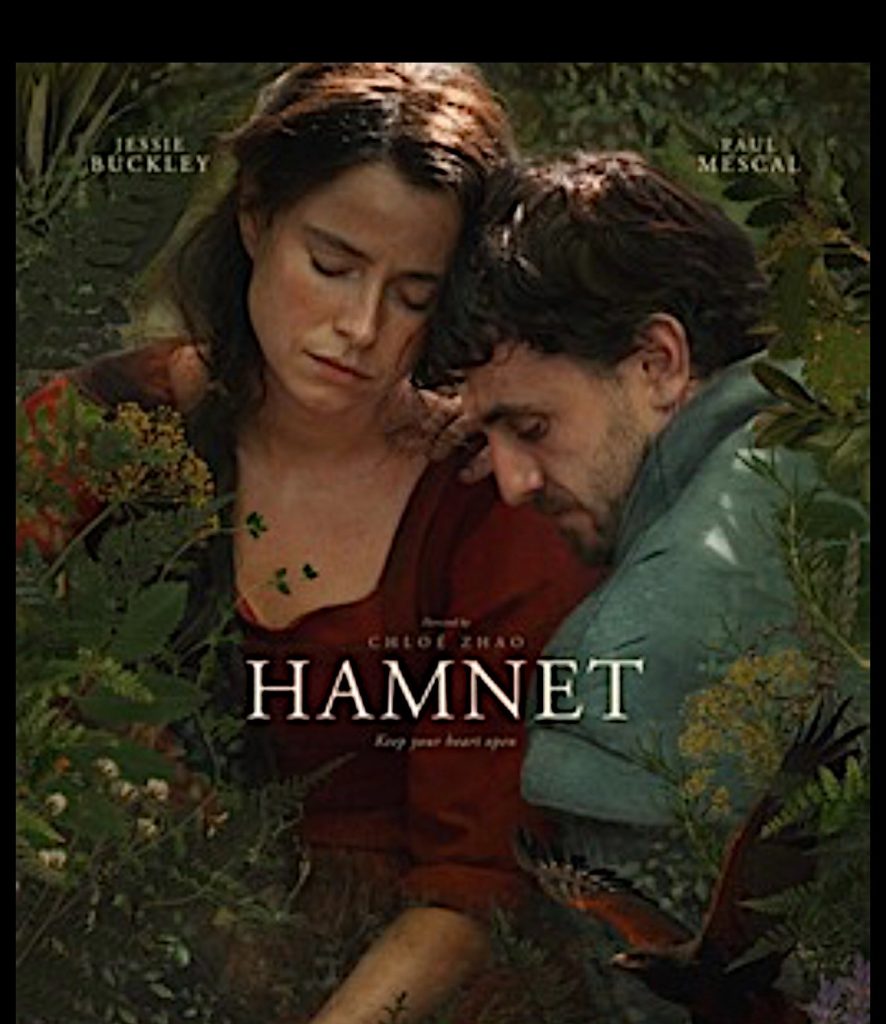
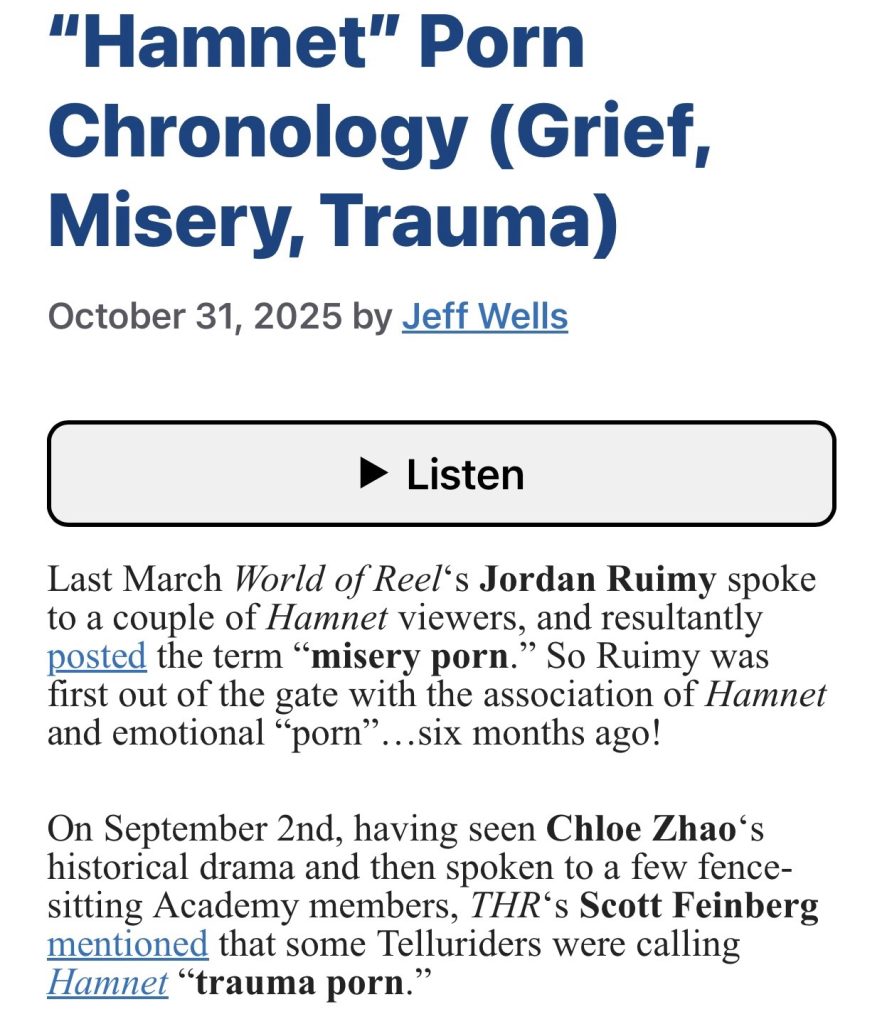
Howard Hawks Takes A Cold Hard Look At “Bugonia”
Does it have three great scenes? No. It has a few interesting or striking moments (like the finale) but forget “great”. I would’ve felt somewhat better if Emma Stone had side-stepped the head-shaving altogether. Jesse Plemons’ beekeeper/kidnapper is too greasy, and Aidan Delbis (i.e., Plemons’ moronic sidekick) is a blob of anti-matter. I “liked” or, you know, “respected” the Lanthimosian lunacy as far as it went, but Bugonia is minor.
Howard Hawks Bluntly Assesses “Jay Kelly”
And the fact — okay, not a “fact” but a realization that not only hit me in the stomach but came close to eliciting a tear when I saw Noah Baumbach’s Jay Kelly in Venice several weeks ago…
The fact is that this currently streaming, faintly melancholy Netflix mood trip flick has only one great scene, or more precisely a great moment.
It’s George Clooney’s titular character not asking a question as much as voicing a plea (as well as a refrain from the opening scene) — “Can I do it again?” Who among us has never said this to themselves (or to God) each and every day since they hit their mid 40s or early 50s?
Again — No One Cares About Gacy’s Boo-Hoo Victims
All murder victims and their families are proverbial ingredients in the same profoundly tragic equation. They wanted to live, and were horrified by the sudden malice and brutality that ended their existence, and their loved ones were gutted and devastated by the loss.
Thud.
Leo Tolstoy: “All murder victims are exactly alike, but each and every murderer is unique in this or that way.”

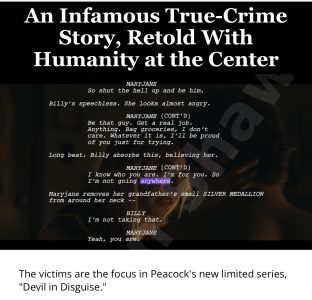
Posted on 10.20.25:
Last night I watched the first three episodes of Patrick MacManus‘s Devil in Disguise: John Wayne Gacy, a new eight-episode Peacock series about the infamous serial killer from a suburb northwest of Chicago.
Gacy was a fat, gay sociopathic beast who had an amiable personality and liked dressing up like a clown, but who also murdered around 34 young men in the ’70s (mostly during the Jimmy Carter era)…he buried most of his victims in a crawl space under his home, and some under his garage’s cement floor. And he dumped a few in the Des Plaines river.
As long as McManus sticks to the Gacy investigation by the Norwood Park cops (and then the prosecution in the later episodes), Devil in Disguise is aces…gripping and fascinating and appropriately gloomy. It has story tension, realism, a strange Midwestern eeriness.
But when it starts veering into the lives of some of the victims and the anguish of their families after they’ve disappeared, you can feel the tension dissipating more and more…you can feel the narrative padding slowing things down.
HE to MacManus: We’d rather not familiarize ourselves with the young gay victims, and we really, really don’t want to deal with the grief of their parents. Bohhr-innnng! If you’d just stuck to the cops and the prosecutors and cut all the dramatic flotsam and jetsom, you’d have a perfect miniseries. Read the “investigation” section of Gacy’s Wikipage…it sucks you right in.
The girthy Michael Chernus, whose Gacy perf sorta kinda reminds you of John Candy in Uncle Buck and Planes Trains and Automobiles, is fairly great as this suburban monster.
The last time I wrote about Chernus was when he played the extra-marital boyfriend of Stephanie Allynne in a glum 2015 Sundance comedy called People Places Things. My basic thought was “why would the pistol-hot Allyne want to cheat on her husband with a not-all-that-handsome overweight guy?”
One Hawks Analysis At A Time
Let’s start with One Battle After Another. Identify the three great scenes. The final chase and shoot-out sequence on the rolling hills highway…that’s one. The French 75 assault on the migrant camp at the very beginning…that’s two. The failed French 75 bank robbery…that’s three.
But are there any “bad” ones? Hawks said you can’t have any. At all.
Regret Tinged with Melancholia
As far as it goes, HE sincerely laments the 11.11.25 passing of Sally Kirkland, who dined out for many decades off her justly praised, Oscar-nominated titular performance in Anna (Vestron), which opened on 10.2.87 and generated a great deal of award-season heat.
In early ‘88 Kirkland, then 47, won Best Actress trophies from LAFCA, HFPA (Golden Globes) and the Spirits.
So she peaked off Anna and not incidentally lived a long, mostly rich and persistently full life (60-year career, 250 film and TV gigs) that was launched, in a sense, by being the daughter of a fashion editor mom, Sally Kirkland, Sr., and was initially sparked, in a sense, by her mid ‘60s association with the jaded, haughty perversity that was synonymous with Andy Warhol’s Factory scene.
Anna also heralded the big-time arrival of then-22-year-old model Paulina Porizkova, who played Anna’s usurper — a character based on Joanna Pacula.
My first reaction to news of Kirkland’s death was “wait, didn’t she pass three years ago?” But I was recalling Sally Kellerman, who resembled Kirkland or vice versa, and was roughly the same age (four years older).
Life passes by so very quickly, recollections tend to blend into ghoulash and every new year is more expensive than the previous one.
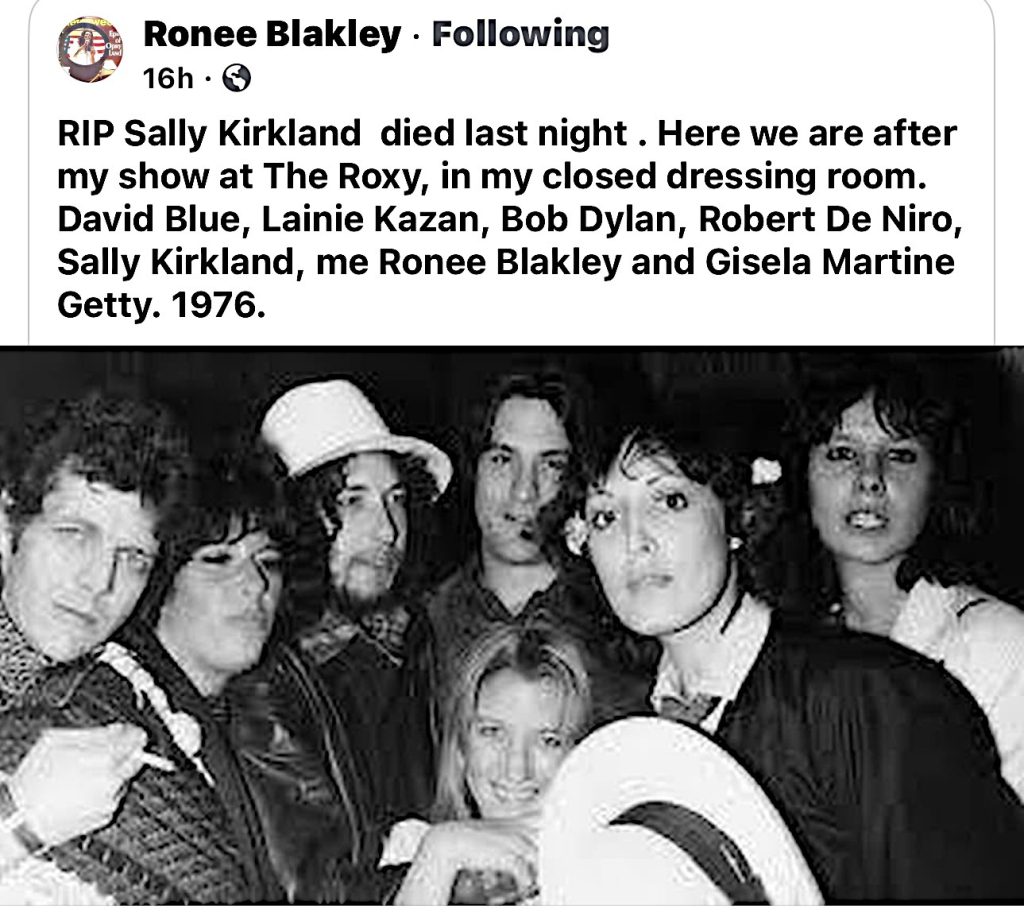
Turkey McNuggets
Visiting Jett, Cait and Sutton’s home in West Orange, New Jersey has been HE’s default Thanksgiving destination since I moved to Connecticut in ‘22. But not this year. Come 11.27 the Jersey crew will be dinner-ing in Massachusetts so Jody and I are out in the cold.
So last week I started looking around for a nice, home-styled, non-corporate restaurant (fireplace, candles, scent of cinnamon and pine needles) to savor a Thanksgiving dinner in, and guess what? They’re all fucking closed.
Okay, we found one place that’s turkey-serving in Silvermine (Tavern at Graybarns) but they’re charging $150 a head plus extra required gratuities. No, thanks. That’s exploitive.
Right now our best (i.e., affordable) Thanksgiving option is Turkey McNuggets at McDonalds.
I think it’s shallow and rather ungracious of those nice local eateries (Westport’s Terrain, Georgetown’s Milestone) to shut their doors on Thanksgiving. They know there are many people like me with no soothing place to go. Restaurants should respect the customer base and open their hearts on this day of family togetherness.

“I Love LA” — A Hyper, Grade-A, Forced-March Farce That Made My Head Explode A La Cronenberg’s “Scanners”
HE to Friendo: “I caught episode #1 of Rachel Sennott’s I Love LA a couple of nights ago, and while it’s simultaneously revved-up and draining you can’t say it lacks the necessary Zoomer energy or doesn’t understand its own lemme–outta–here vibe— either you submit to this kind of arch–humor–aimed–at–under–35–women–and–gay–dudes thing or you throw up your hands and turn it off.
“Full respect paid to Sennott, the show’s maestro-like creator, star, senior writer and exec producer.
“But if I was a 28-year-old Silver Lake woman looking to somehow nudge my way into talent-managing and all my friends talked like the women on this show (toxic emotional phoniness…migraine–inducing, machine–gun insincerity to the max) I would probably wind up (a) shooting myself with a snub-nosed .38 or (b) becoming a William S. Burroughs-level heroin addict. My motto would be ‘yeah, I love LA but I’m drowning in phoney-baloney, fair-weather friends.'”
Friendo: “It’s just Lena Dunham 2.0…a mix of Girls and Entourage.”
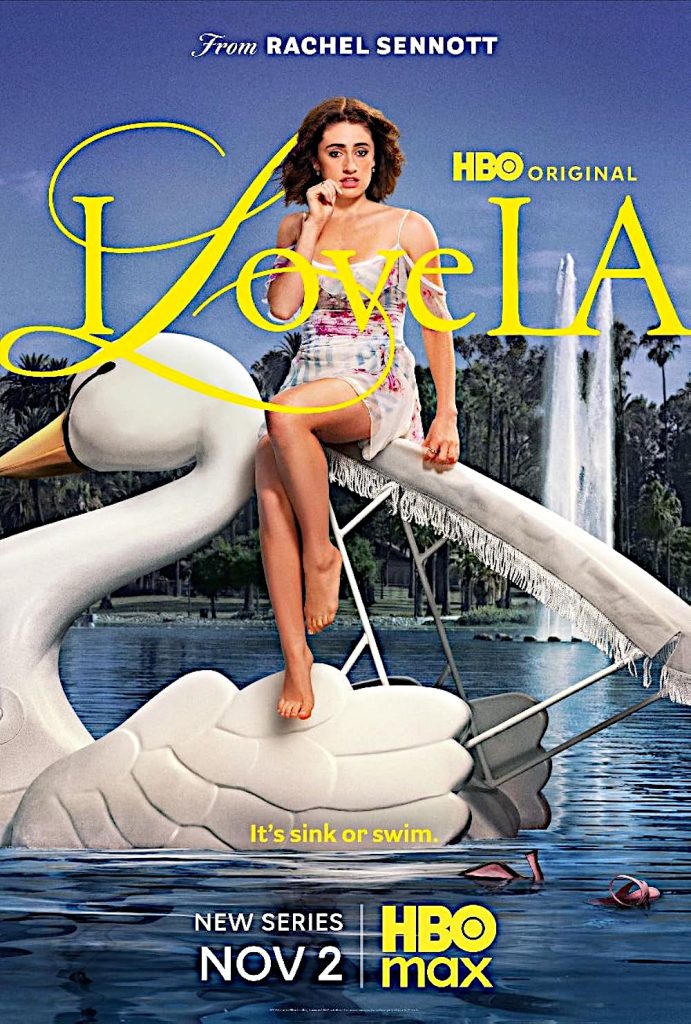
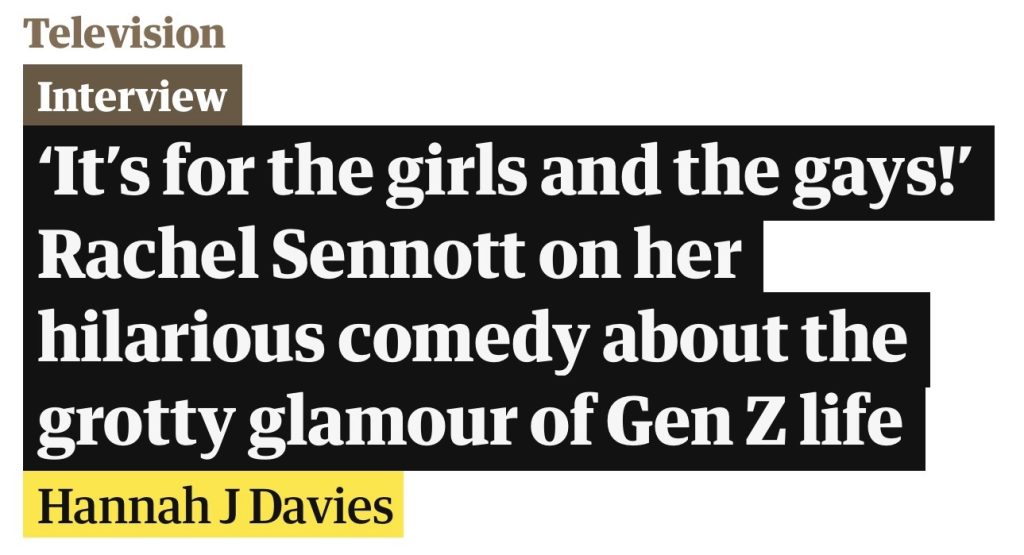
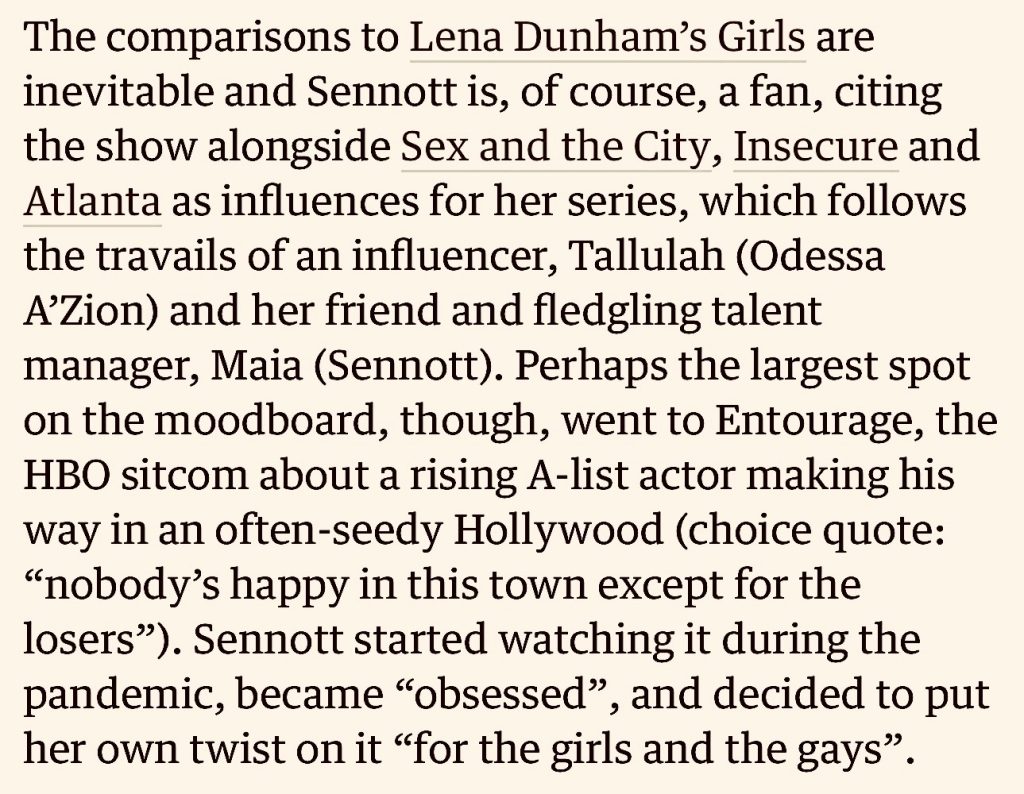
Tatiana Antropova in a scene from I Love LA:
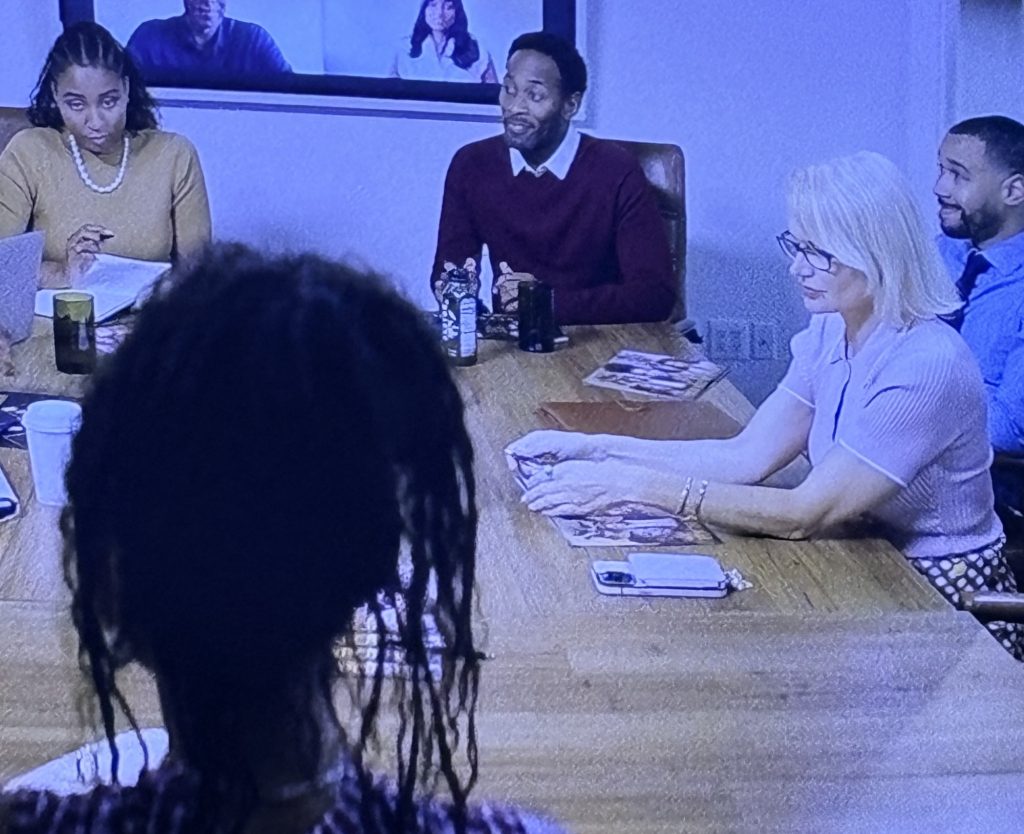
Radically Different Impressions
HE commenter Mike Shea: “Die, My Love definitely feels like a new subgenre: the tired, frazzled, going-insane, new mother experience. I thought Amy Adams was great in Nightbitch even as the story chickened out by the end. There was last month’s If I Had Legs I’d Kick You. There was also Jason Reitman‘s Tully. And now this.”
In this Die, My Love corner, N.Y. Times film critic Alissa Wilkinson. On the ring’s opposing side, Hollywood Elsewhere’s Fearless Fosdick…Jeffrey Wells, I mean. Sepia-amber tint vs. stark black-and-white. In essence, the alleged joys of sisterly solidarity and mad Lawrentian immersion vs. instinctual lemme-outta-here plus an honest, elemental fear of being chomped down on.
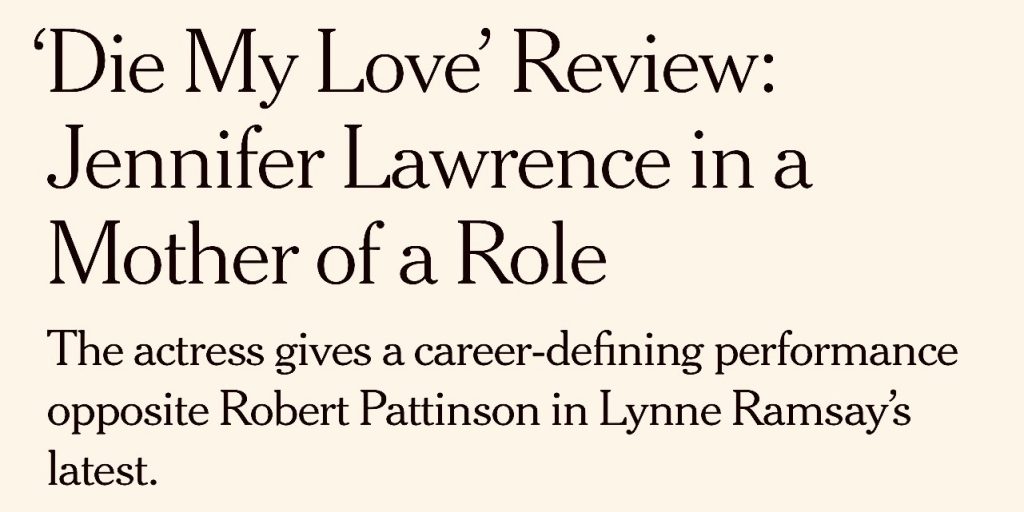

Wilkinson….
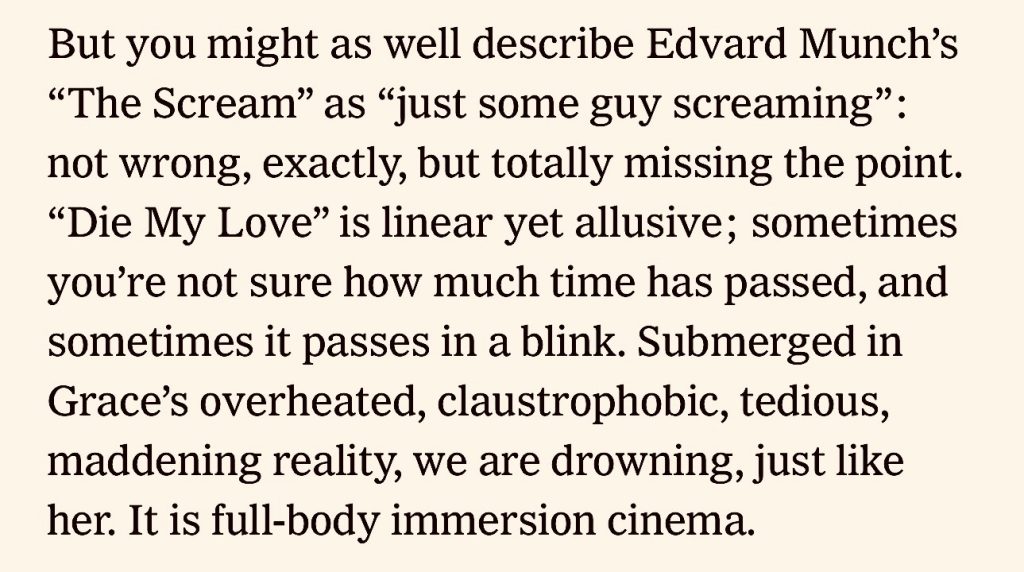
Wells…
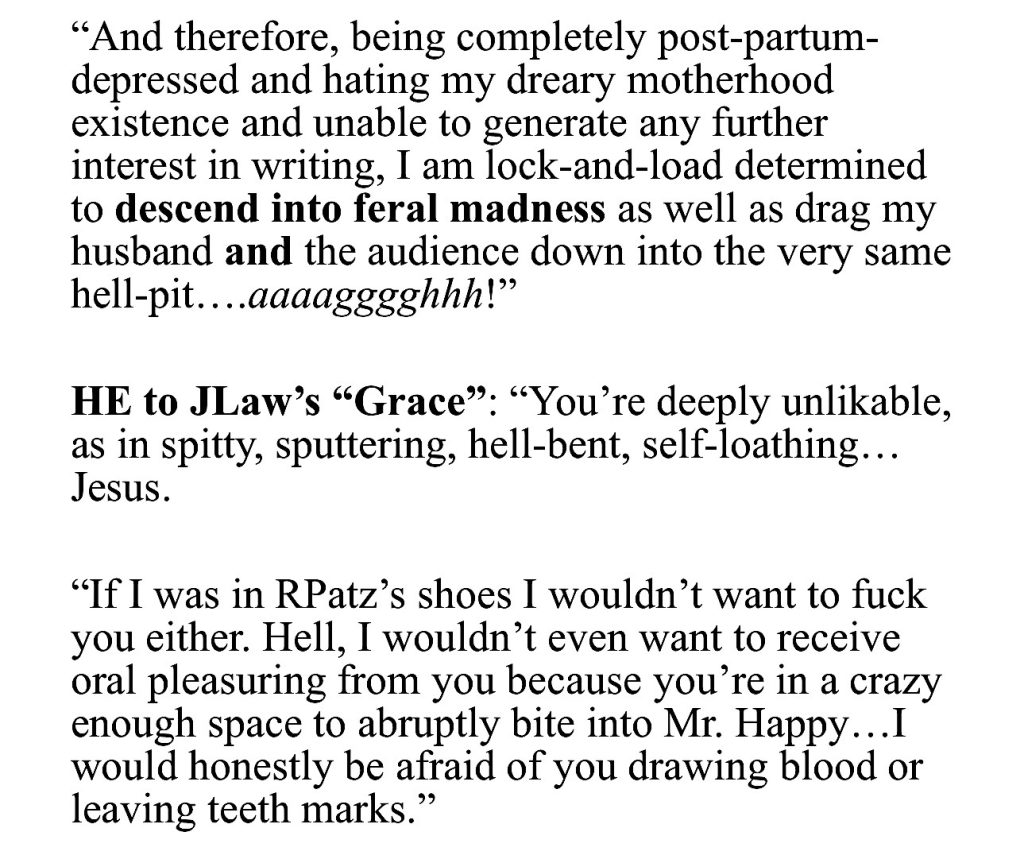
Wilkinson…
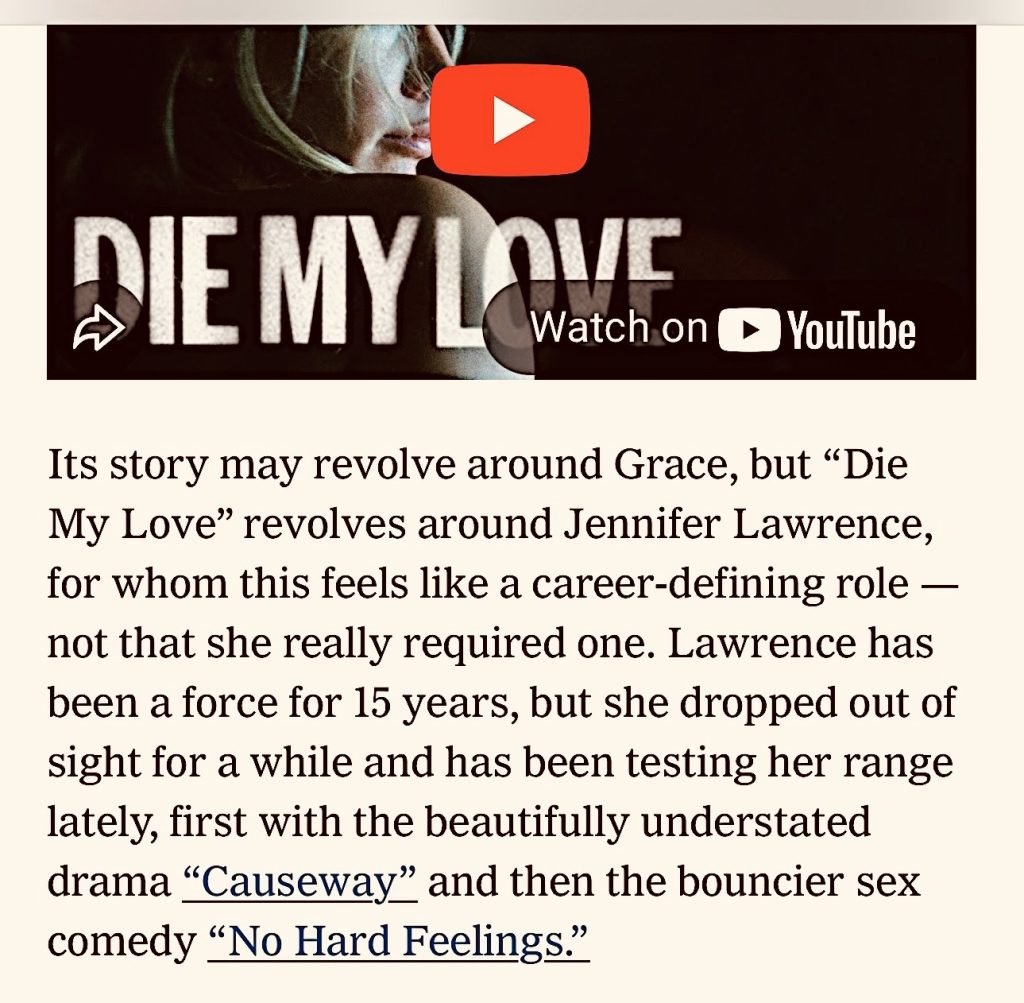
Wells…
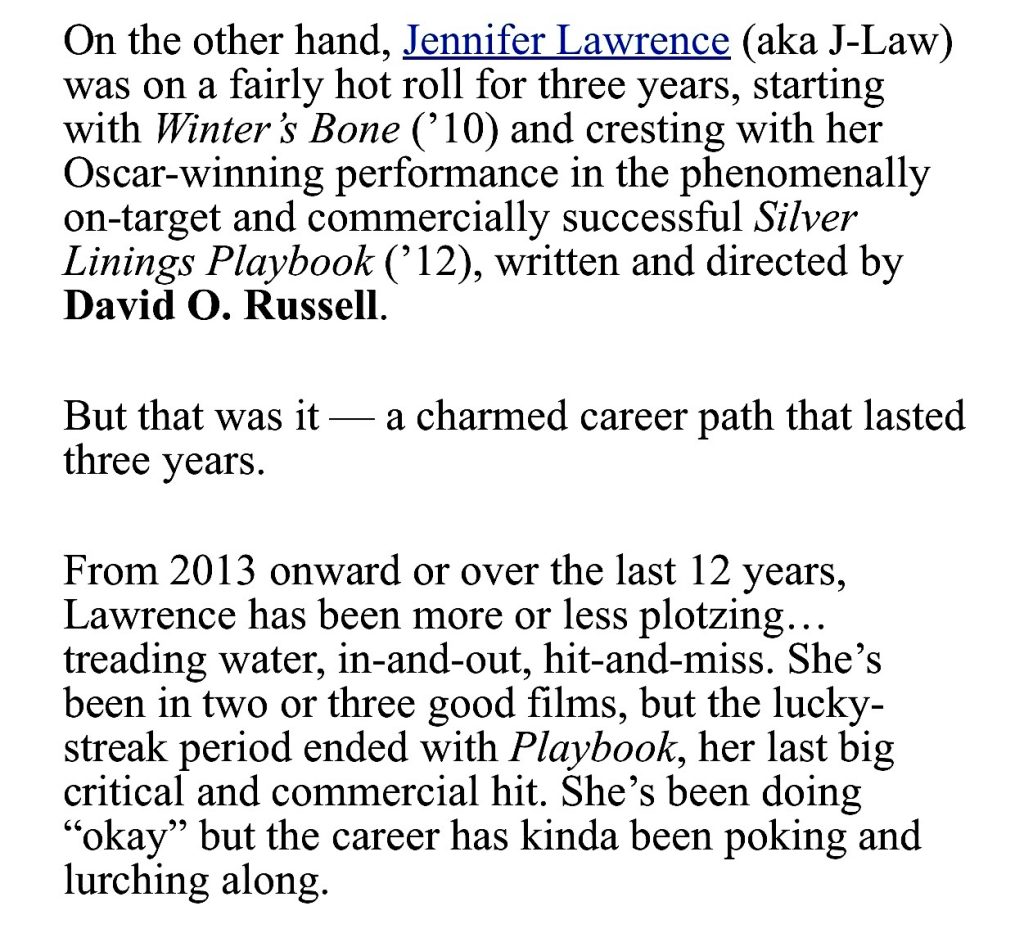
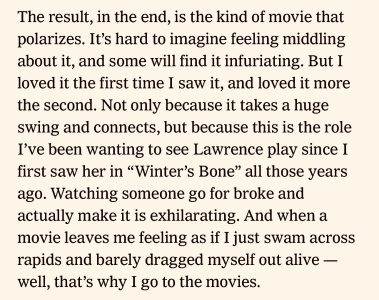
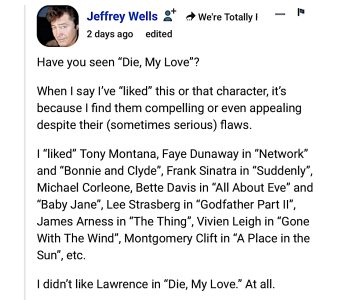
Dawn of the ‘90s
My “Die, Yuppie Scum” T-shirt was still considered timely apparel when this snap was taken in the spring or early summer of ‘90. “Yuppie” had been a curse word for a good four or five years. A few months earlier Mike Figgis’s Internal Affairs opened theatrically. In the final scene Richard Gere’s Peck, a corrupt cop, angrily taunts Andy Garcia’s Raymond Avila by calling him a “fucking yuppie.”
Jett was nearly two; Dylan was five or six months old.
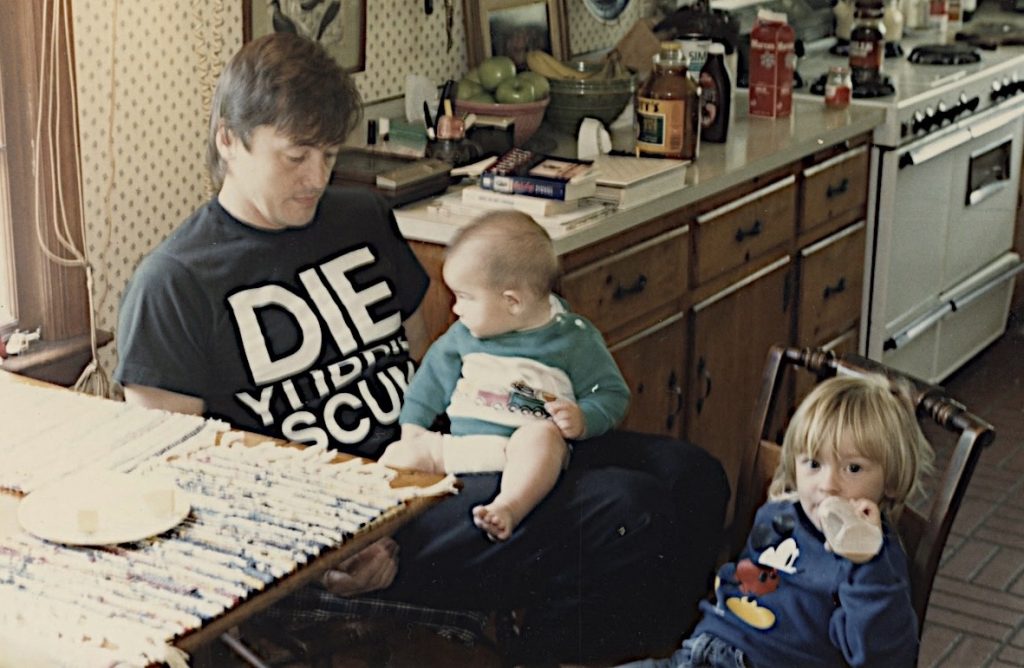
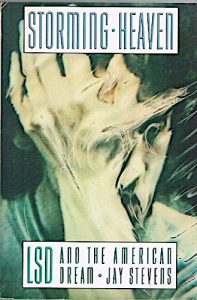
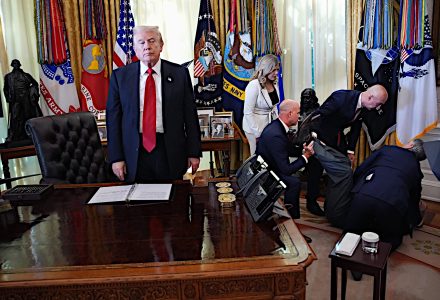
Cary Grant Didn’t Drop Acid Until ‘58
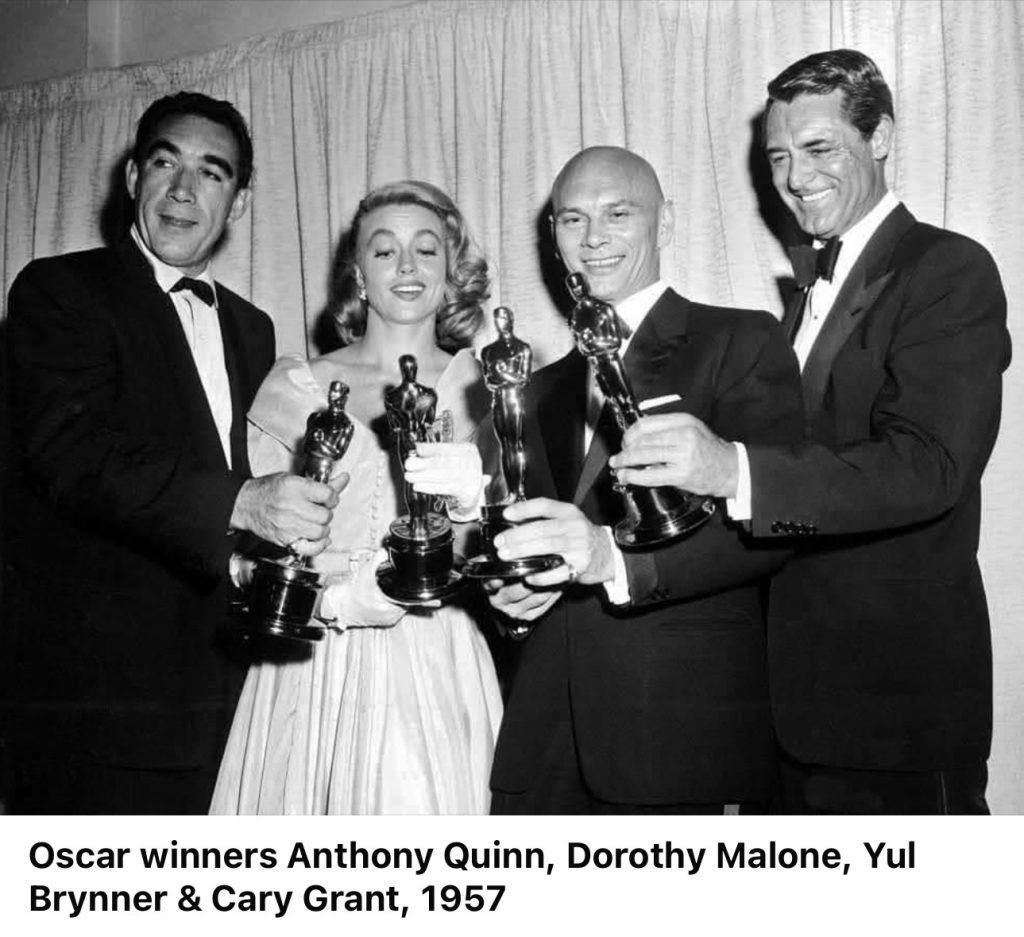
…and tripping on LSD is not what anyone who knows anything would call a “stoned” excursion — it’s more like the intoxication of sailing clear-headed on the Long Island Sound under marmalade skies.



And I think Grant stopped tripping when his daughter Jennifer came along in ‘66.
At the 1957 Oscars Grant accepted Ingrid Bergman’s Best Actress Oscar (Anastasia) on her behalf.
